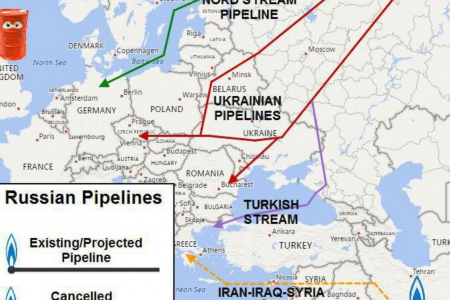
At the beginning of December, the price of Thai jackfruit in Dak Lak and Hau Giang for delivery at the garden dropped dramatically, to a record low of only VND2,000 /kg because it could not be exported to China, and goods were congested at the border gate. (1USD= VND22,700)
Similarly, in July 2020, when the Chinese government tightened export quotas, official quotas faced great difficulties due to low consumption, the price of Vietnamese durian fruit sold in the garden plunged unprecedentedly, the remaining VND30,000-35,000/kg.
In fact, at present, Vietnam’s agricultural products are heavily dependent on the Chinese market. Every time this country changes the state of opening and closing customs clearance, Vietnam is always in a passive position and constantly repeats the chorus of falling prices because goods cannot be exported.
Especially, in the coming time when China with more than 1.4 billion people tightens import activities, Vietnamese agricultural products face many challenges.
Trucks carrying agricultural products for export to China have been stuck for nearly a month at Lang Son border gate
The paradox of agricultural prices
In recent days, thousands of container trucks carrying agricultural products for export to China have been stuck at the border gates in Lang Son. Currently, there are at least 4,581 agricultural vehicles with farm produce that cannot be exported. This situation causes the price of output agricultural products in the domestic market to continuously decrease.
For example, the price of white flesh dragon fruit decreased to around VND8,000 /kg; red flesh is about VND12,000-15,000/kg; Thai jackfruit prices decreased to VND4,000-9,000/kg, some even down to VND2,000/kg. Similarly, fruits and vegetables such as watermelon, durian… start to decrease in price by 20-30%.
Many barn owners, instead of packing for export, had to choose the domestic market for consumption, but the purchasing power was not much. According to Mr. Le Van Quoc, owner of the Quoc Tuan jackfruit farm in Hau Giang, the main reason for the sharp drop in the price of Thai jackfruit as well as agricultural products is due to serious congestion at the border gate to China.
“Unable to export through, damaged goods caused prices to continuously decrease,” he said. Besides, due to the impact of the Covid-19 epidemic, the low domestic consumption, the supply outstripping demand also caused the price of agricultural products to decrease.

While many gardeners standstill because agricultural products have dropped in price and cannot be exported, at markets and supermarkets, retail prices of fruits have remained high. A survey by Zing at Co.opmart SCA GoldenSilk supermarket (Hoang Mai, Hanoi), the price of Cat Hoa Loc mango is up to VND76,900/kg, Cat Chu mango is VND34,900/kg, dragon fruit is VND29,900-57,400/kg, while durian is sold at VND94,900/kg alone.
Similarly, at Vinmart Nguyen Chi Thanh supermarket (Dong Da, Hanoi), watermelon costs VND29,900/kg, dragon fruit costs VND31,500/kg, peeled Thai jackfruit VND67,800 /kg, Cat Chu mango VND55,200/kg, and Cat Hoa Loc mango- VND99,900/kg.
In markets, the price of fruits is also 2-3 times higher than the price at the garden. If the price of Thai jackfruit in the garden is dropping to VND2,000-8,000/kg, at Cong Vi market (Ba Dinh district) the price is VND20,000-25,000/kg for the raw type, VND40,000/kg for the peeled type.
Ms. Hoa – who specializes in selling fruit in Hanoi – said that she only makes a profit of about VND5,000-10,000 per kilogram. “The price of fruits has to go through many intermediary stages from the gardener to the wholesale market and then to the retail market to the smaller selling points. Therefore, the price also increases through each stage,” she said.
Cheap Chinese agricultural products flooding Vietnam’s market
On the other hand, while Vietnamese are struggling to export local agricultural products to foreign countries, foreign agricultural products are very popular in the domestic market. In Hanoi, Chinese vegetables, tubers, and fruits are sold in many traditional markets and online markets at low prices.
Ms. Nguyen Yen (Hoang Mai, Hanoi) – specializing in online fruit business – said that green grapes, crispy persimmons, stone apples from Lang Son border gate are being imported a lot. Among them, apples and tangerines are the most popular cheap products.
“Apples cost VND65,000/box of 7kg, which is less than VND10,000/kg. Goods are available per ton in Lao Cai,” she said. She said that everyday imports for wholesale customers from the North to the South up to tons.
According to a small vegetable seller at Linh Lang market (Ba Dinh district), most of the items such as carrots, potatoes, tomatoes, onions, cabbage… sold in the markets are imported from China. The amount of vegetables in Da Lat is usually very small because the price is 2 or 3 times higher than the price of Chinese vegetables and they spoil faster.
Some groups of Chinese agricultural products at the wholesale market are garlic, ginger, onion, enoki mushrooms, tangerines, pears, apples…
“For example, tomatoes, usually Chinese tomatoes are only about VND20,000-30,000/kg. But when the border gate is tightened, the number of Chinese tomatoes is small, so the domestic tomato price increases to VND50,000-60,000/kg,” said this small trader.
Ms. Hoang Trang (Thanh Xuan, Hanoi) said that it is difficult to distinguish between Chinese vegetables and fruits with local products. Therefore, she often goes to the supermarket because the goods have a clearer origin. “If I go to the market, I usually choose carrots with bad design, lots of soil, small tubers because it’s a Vietnamese product and the big, uniform, shiny skin is Chinese,” she said.
According to the General Department of Customs, in 11 months, import turnover of the whole country reached $300.27 billion, up nearly 30% on the year. Notably, in 11 months, imports from China amounted to $99.4 billion, up 33.2% over the same period last year and accounting for more than 33% of the country’s import turnover.
In which, accumulated in the 10 months of 2021, the import value of Vietnam’s vegetables and fruits is estimated at $1.201 billion, up 14.7% over the same period in 2020.
Will Vietnamese agricultural products ever reduce dependence on China?
According to the Vietnam Fruit and Vegetable Association, in 9 months, China is the largest source of vegetables and fruits for Vietnam, accounting for nearly 30% of the market share, equivalent to $317.4 million, an increase of nearly 32% compared to the same period last year. period last year.
Statistics show that in the group of fruit and vegetable exports, China is the largest market, with a total turnover of $1.8 billion (accounting for about 55% of Vietnam’s export market share of fruit and vegetables). Many other export industry groups also consider China a major partner.
According to Ms. Ngo Tuong Vy, Deputy Director of Chanh Thu Fruit Import-Export Company (Ben Tre), in order to stabilize the output of agricultural products, in the long run, the people and the government need to go into production in a linked chain. At the same time, authorities need to provide market information to businesses and localities to limit risks.
“The Chinese market is changing a lot in terms of imports, so the agricultural industry, localities, and businesses must actively change their thinking in agricultural production and business,” she said.
Ms. Vy said that the most sustainable way is still to export through official channels and find a way into the big supermarkets of other countríe.
“If businesses still follow the old sales method and mindset, exporting to China in the near future will face many risks,” she acknowledged.
Talking to Zing, Mr. Dang Phuc Nguyen – General Secretary of the Vietnam Fruit and Vegetable Association – said that because China pursues the goal of “Zero Covid“, the inspection process of goods and agricultural products at border gates is very careful. Customs clearance is slow, the prices of agricultural products also decrease accordingly.
Mr. Nguyen said that China’s issuance of Order 248-249 showed that the living standards of this country’s people are getting higher and higher, requiring the quality of goods to be improved than before.
“In the past, in Vietnam, the production organization applying the production model according to VietGap and GlobalGap standards was limited to about 20-30% of the area. But when China applied the new standard, businesses had to increase strengthen this model and focus on food safety, origin, packaging, and labeling,” he said.
He assessed that China’s issuance of these two new orders will bring Vietnamese production into the framework. In addition, he said that Vietnamese agricultural products must meet all strict standards of fastidious markets such as the US, Japan, Germany…
Thus, along with processing technology, cold storage system does not worry about falling prices or being dependent on any market.
Thoibao.de (Translated)
Source: https://nhadautu.vn/trai-cay-rau-cu-viet-gap-kho-khi-trung-quoc-siet-chat-nhap-khau-d61866.html




























